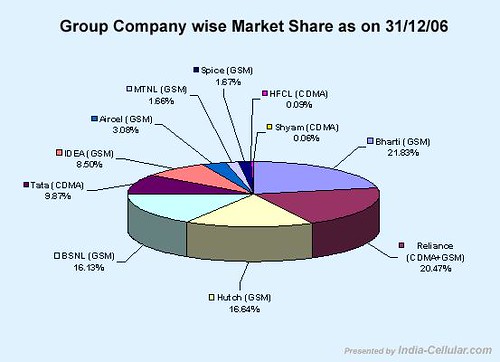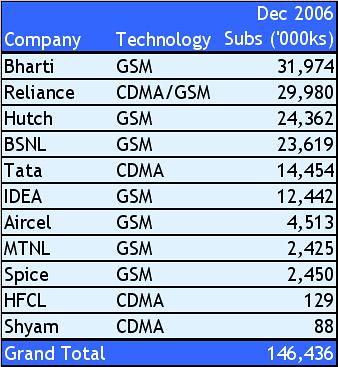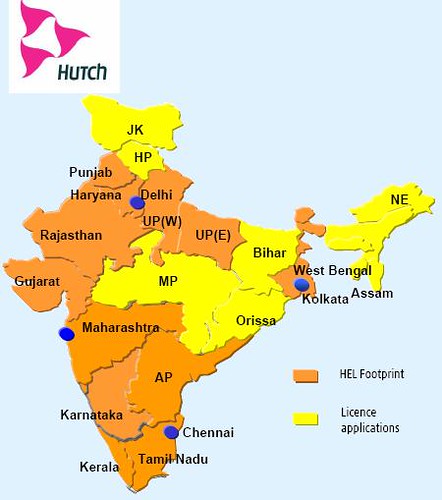Carphone: It is getting painful
O2 contract
A lovely quote from Peter Erksine of O2:'We've leveraged [Voda pulling out of Carphone] quite heavily. We've come to a good agreement with Carphone where we get more volume, and overall therefore Charles [Dunstone] gets a lot of cash but overall but per connection it works out better for us. But we've got to keep squeezing the acquisition costs.'We can all argue about semantics until we are blue in the face and while technically the above does not constitute a guarantee of volume for O2, it is pretty clear that if Carphone doesn’t deliver the volume, the commissions from O2 won’t be anything to brag about. For Telefonica, the parent company of O2, the words from Erksine must be music to their ears – not only lower unit acquisition costs, but more or less a clad iron guarantee that the pressure is going to kept on in the future for further cuts.
I always felt that Andrew Harrison was splitting hairs in his motivational message to the troops post-Voda loss:
We will always sell phones on the basis of what is the right and best for our customers, not on the basis of guaranteeing volumes of sales for networksI think those words are going to come back and haunt him, because the impression I get right now the humbling message coming out of Carphone is:
We're here to sell whatever the networks want us to sell
Orange contract
Yet again Mobile Today had the scoop this morning with details of the new Orange / Carphone contract with three startling concessions from Carphone:a) Restrictions on the amount of Tele and Web Sales.
It is the one of the worlds worst kept secrets that the quality of customers coming through any web channels is terrible or rephrasing “the web produces low margin contract customers, when customer acquisition is through third parties”. A brief glance to Carphone "discount" main websites: e2save, onestopphoneshop and thephonespot show heavily discounted airtime packages featuring huge cashback. It is also noticable that the Orange presence has more or less dropped from the sites. I can almost guarantee that the majority of people who buy these types of deals will just look for the next greatest and best deal 12 months on – regardless of network.
Mobile Today estimate 40% of Carphone sales comes through these type of channels – this is a huge amount of business. Remember in the UK, Carphone did 442,795 new subscriptions from Apr to Sep 2006. It is not just Carphone that is under pressure in this market segment – all retailers whether retail, call centre or web based are under intense pressure to quit the cashback offers. What is going to happen to all these contract customers at the contract renewal stage? This segment of the market is used to extremely cheap minutes packages and I’m not sure where they are going to go. I suspect a lot of them are youngsters or low income who just can’t afford the entry level monthly-commitment of a £25/month bundle.
I think 2007 might see an operator address this market with a cheap minute / text bundle with no subsidized handset and no third party commissions. In other words only available direct. This is exactly the type of price innovation that is T-Mobile and Virgin Mobile territory.
b) Selling Orange Broadband.
This is new territory for Carphone – selling other home packages in addition to TalkTalk. Personally, I can’t really see this delivering a lot of volume to Orange, but agree that it is worth experimenting and breaking an important precedent. Both Virgin Mobile and O2 will watching closely and wondering whether they want their products in the Carphone shops as well.
c) Cashflow effects
This is potentially the most painful for Carphone – less money upfront and more over the contract lifetime according to profitability. Orange is no doubt Carphone’s second biggest customers in the UK and deferring a lot of payment will have a considerable impact on Carphone and with debt levels rising fast at the parent group due to heavy investments in broadband – debts stood at £850m at year end with a significant £120m still owed to AOL. I’m also unsure about the effect on revenue recognition - if a larger element is dependant upon contract performance, I’m not exactly sure how much commission Carphone can actually recognize at Sales times. Mind you, if cashbacks are eliminated, the difficult “provisions” aspect of the Carphone accounts will be cleared up.









